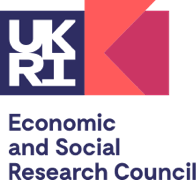Economic and Social Research Council (ESRC) grant ES/L011662/1, Co-Principal Investigators: Jonathan Gershuny, Oriel Sullivan
£4.1 million grant which spans January 2014 to March 2019
National Institutes of Health, R01HD053654 subcontract through University of Maryland, Principal Investigator: Kimberly Fisher
grant October 2012 to September 2017
Economic and Social Research Council (ESRC) grant ES/F037937/1, Principal Investigator: Jonathan Gershuny, an extension of Developing the Centre for Time Use Research grant RES-060-25-0037 to facilitate the development of diaries for the Millennium Cohort Study (project 6).
grant £2,110,158.71, paid from 1 October 2008 to 30 September 2013.
A further Economic and Social Research Council (ESRC) Collaboration Agreement Ref: R08030/CN001 (1 January 2013 to 31 March 2014) with amendment Ref: R08030/CN002 (extended to 30 September 2014) contributed to collaboration between CTUR and the Institute of Education for the development of diaries for the Millennium Cohort Study (project 6).
This research programme has six elements:
- National UK Time Diary Survey
- Advancing and Developing Diary Instruments
- Supplementing Diaries With Additional Data Collection
- Expanding the Multinational Time Use Study
- On-Line Resources
- Adding Time Diaries to Longitudinal Surveys
CTUR will commission and oversee a new national British time diary survey using following the Eurostat Harmonised European Time Use Studies (HETUS) guidelines. We have commissioned the National Centre for Social Research (NatCen) to conduct the survey. NatCen will draw a random sample of 5,550 UK households, and collect interviews and diaries from April 2014 to March 2015. All household members aged eight and above will be asked to complete two own-words 24-hour diaries (one weekday, one weekend). The study is expected to collect approximately 20,000 diary days, and is similar in design to the 2000-01 UK time diary survey, as well as over 30 other studies in other European countries over the period 1998-2013.
CTUR will develop and pilot advanced diary instruments. We will ask a subset of respondents to the UK HETUS survey to rate their enjoyment of each activity throughout the daily sequence. CTUR also will explore innovative data collection technologies such as smart-phone apps, and collect a new web-based time diary module as part of a commercial panel study conducted in eight European countries (UK, France, Germany, Sweden, Finland, Netherlands, Italy, Spain). Additionally, CTUR will develop new habit instruments and activity enjoyment measures to investigate effects of policy differences among national regulatory systems (“regimes”).
CTUR will conduct a set of projects combining diaries and technical instrumentation (accelerometers, body cameras, high resolution smart energy meters for household devices), contributing to new medical, public health and environmental applications for diary data. In this work we are collaborating with a number of other University of Oxford departments, including the Sleep and Circadian Neuroscience Institute in the Nuffield Department of Clinical Neurosciences, the Nuffield Department of Population Health, and the Environmental Change Institute.
CTUR will expand the geographical range of countries included in the MTUS to cover rapidly industrialising Asian countries(the Republic of Korea), and developed countries (India), to complement the mainly developed nations currently represented. CTUR also will extend the historical range both backwards (adding UK and US materials from the 1920s and 1930s) and forwards with HETUS, American Time Use Survey and recent and planned future surveys. Additionally, CTUR will develop additional supplementary micro-data enhancing research in health and wellbeing, as well as in environmental modelling. In parallel, CTUR will add historical and well as some future planned surveys to the American Heritage Time Use Study.
CTUR will improve website resources, improving the search functionality and ease of access to information, as well as continuing to extend the publication database and database of metadata of time use surveys. This grant also will contribute to collaboration with the Maryland Population Research Center (MPRC) and the Minnesota Population Center (MPC), in developing an “TUS-X” data distribution mechanism, which will enable users to download selected elements of the American Heritage Time Use Study as well as a subset of surveys included in the Multinational Time Use Study.
CTUR collaborates with the Centre for Longitudinal Studies at the Institute of Education on the inclusion of a time diary in the age 14 wave of the Millennium Cohort Study, and separately collaborates with the Institute for Social and Economic Research at the University of Essex, adding a time diary to the Understanding Society Innovation Panel.


